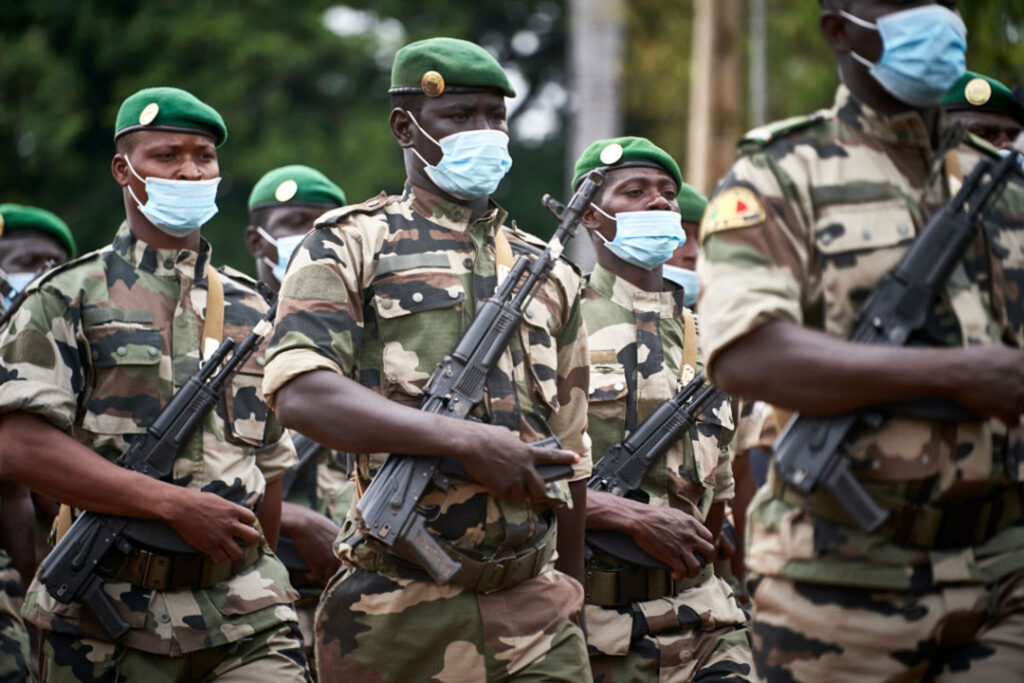ADF STAFF
Malian Armed Forces drove armed extremists out of the tiny village of Farabougou, where the population had endured a two-week siege. The clash began about October 8, when terrorists kidnapped several villagers in the town of 2,000 and fought with local hunters.
When heavy rains made it impossible for special forces to access central Mali by land, the nation’s Air Force flew them in. The Air Force also airlifted wounded civilians to a nearby town for medical treatment, Reuters reported.
Observers say the terrorist threat still looms in the area.
“The access roads to Farabougou are still blocked, the jihadists are still around, in the forests or hidden on either side of the roads,” Dramane Symbara, mayor of nearby Sokolo, told Reuters.
Nationwide, conflict has killed thousands of Soldiers and civilians since 2012 and displaced hundreds of thousands of people.
In central Mali, competition over limited resources has led to battles between ethnic Dogon or Bambara farming communities and Fulani herders. Traffickers and terrorist groups have supercharged the violence.
“The availability of weapons, coupled with complex connections between criminal organizations, traffickers, and terrorist groups, has enabled a culture of violence to take root and spread throughout Mali,” Lt. Col. Alou Boi Diarra of the Malian Armed Forces told the Africa Center for Strategic Studies. “This is weakening incentives to coexist peacefully and resolve conflicts through nonviolent means.”
Diarra added that traditional forms of conflict resolution in which village elders agreed on demarcations between grazing and farmland have eroded. “Force has replaced the power of traditional diplomacy and customary norms,” Diarra said.
The Farabougou siege started about two months after Mali’s military launched a coup that led to the ouster of President Ibrahim Boubacar Keita. Military leaders have established an interim government until the nation returns to civilian rule.
Despite the presence of 5,100 French troops in the Sahel region and 13,000 United Nations troops, terrorist attacks against Malian villagers and Soldiers are ongoing. According to the U.N., terrorist attacks against armed forces in Mali caused 175 deaths between April and October.
There is no consensus on how to handle the insurgency.
In late October, French Foreign Minister Jean-Yves Le Drian said holding a dialogue with terrorists is not an option. Le Drian told Agence France-Presse (AFP) that the U.N. Security Council and the G5 Sahel Joint Force, a regional anti-terrorist group that includes Mali, share his position.
Mali’s interim prime minister, Moctar Ouane, disagreed, saying dialogue offers “an opportunity to launch a huge discussion with communities to define the contours of a new governance,” AFP reported.
“This will require synchronization and coordination with our partners, especially those who are involved militarily,” Ouane added.

